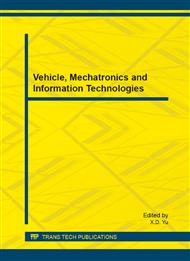p.1439
p.1444
p.1448
p.1454
p.1460
p.1464
p.1469
p.1473
p.1477
A Knowledge Rule Mining Method for the Evaluation of Library Readers Satisfaction Rate
Abstract:
The readers satisfaction rate is an important index of library service quality. Evaluation of library readers satisfaction rate depends on knowledge rules to a large extent. In this study, the synthesized evaluation index system of readers satisfaction rate was established firstly. Then, a method for mining the evaluation knowledge rules of readers satisfaction rate based on an improved genetic algorithm was proposed. In the algorithm, new knowledge rules were generated by selection operator, dual crossover operator and dual mutation operator. Knowledge rules were evaluated by their accuracy, coverage and reliability, and they were evaluated by linear combination method. Experimental results show that this method for mining knowledge rules is valid. It is helpful for us to evaluate library readers satisfaction rate fairly and objectively.
Info:
Periodical:
Pages:
1460-1463
Citation:
Online since:
August 2013
Authors:
Price:
Сopyright:
© 2013 Trans Tech Publications Ltd. All Rights Reserved
Share:
Citation:


